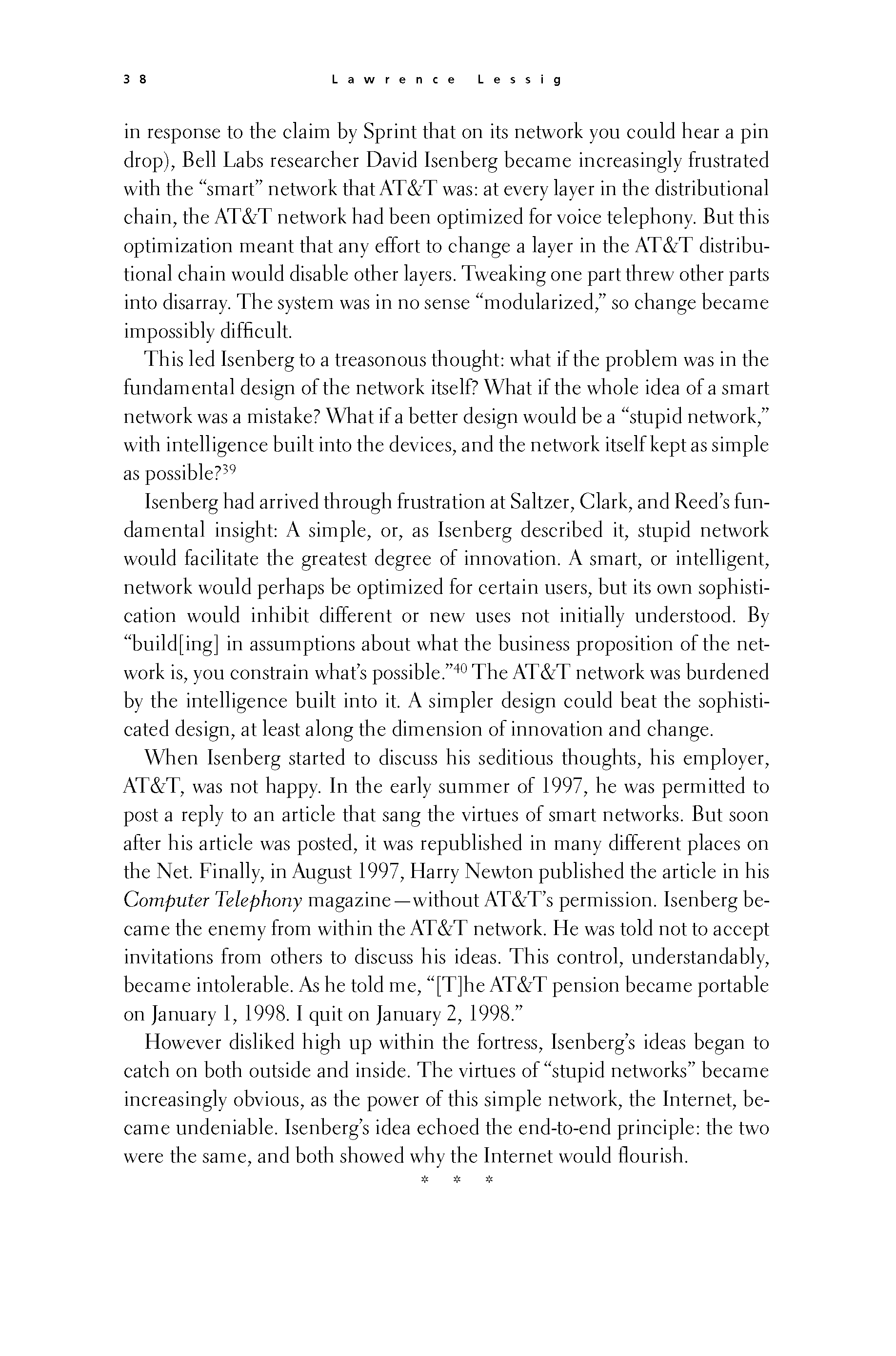 p037 _
-chap- _
toc-1 _
p038w _
toc-2 _
+chap+ _
p039
p037 _
-chap- _
toc-1 _
p038w _
toc-2 _
+chap+ _
p039
in response to the claim by Sprint that on its network you could hear a pin
drop), Bell Labs researcher David Isenberg became increasingly frustrated
with the "smart" network that AT&T was: at every layer in the distributional
chain, the AT&T network had been optimized for voice telephony. But this
optimization meant that any effort to change a layer in the AT&T distribu-
tional chain would disable other layers. Tweaking one part threw other parts
into disarray. The system was in no sense "modularized," so change became
impossibly difficult.
This led Isenberg to a treasonous thought: what if the problem was in the
fundamental design of the network itself? What if the whole idea of a smart
network was a mistake? What if a better design would be a "stupid network,"
with intelligence built into the devices, and the network itself kept as simple
as possible?[3-39]
Isenberg had arrived through frustration at Saltzer, Clark, and Reed's fun-
damental insight: A simple, or, as Isenberg described it, stupid network
would facilitate the greatest degree of innovation. A smart, or intelligent,
network would perhaps be optimized for certain users, but its own sophisti-
cation would inhibit different or new uses not initially understood. By
"build[ing] in assumptions about what the business proposition of the net-
work is, you constrain what's possible."[3-40] The AT&T network was burdened
by the intelligence built into it. A simpler design could beat the sophisti-
cated design, at least along the dimension of innovation and change.
When Isenberg started to discuss his seditious thoughts, his employer,
AT&T, was not happy. In the early summer of 1997, he was permitted to
post a reply to an article that sang the virtues of smart networks. But soon
after his article was posted, it was republished in many different places on
the Net. Finally, in August 1997, Harry Newton published the article in his
_Computer_Telephony_ magazine -- without AT&T's permission. Isenberg be-
came the enemy from within the AT&T network. He was told not to accept
invitations from others to discuss his ideas. This control, understandably,
became intolerable. As he told me, "[T]he AT&T pension became portable
on January 1, 1998. I quit on January 2, 1998."
However disliked high up within the fortress, Isenberg's ideas began to
catch on both outside and inside. The virtues of "stupid networks" became
increasingly obvious, as the power of this simple network, the Internet, be-
came undeniable. Isenberg's idea echoed the end-to-end principle: the two
were the same, and both showed why the Internet would flourish.
***
[[38]]
p037 _
-chap- _
toc-1 _
p038w _
toc-2 _
+chap+ _
p039